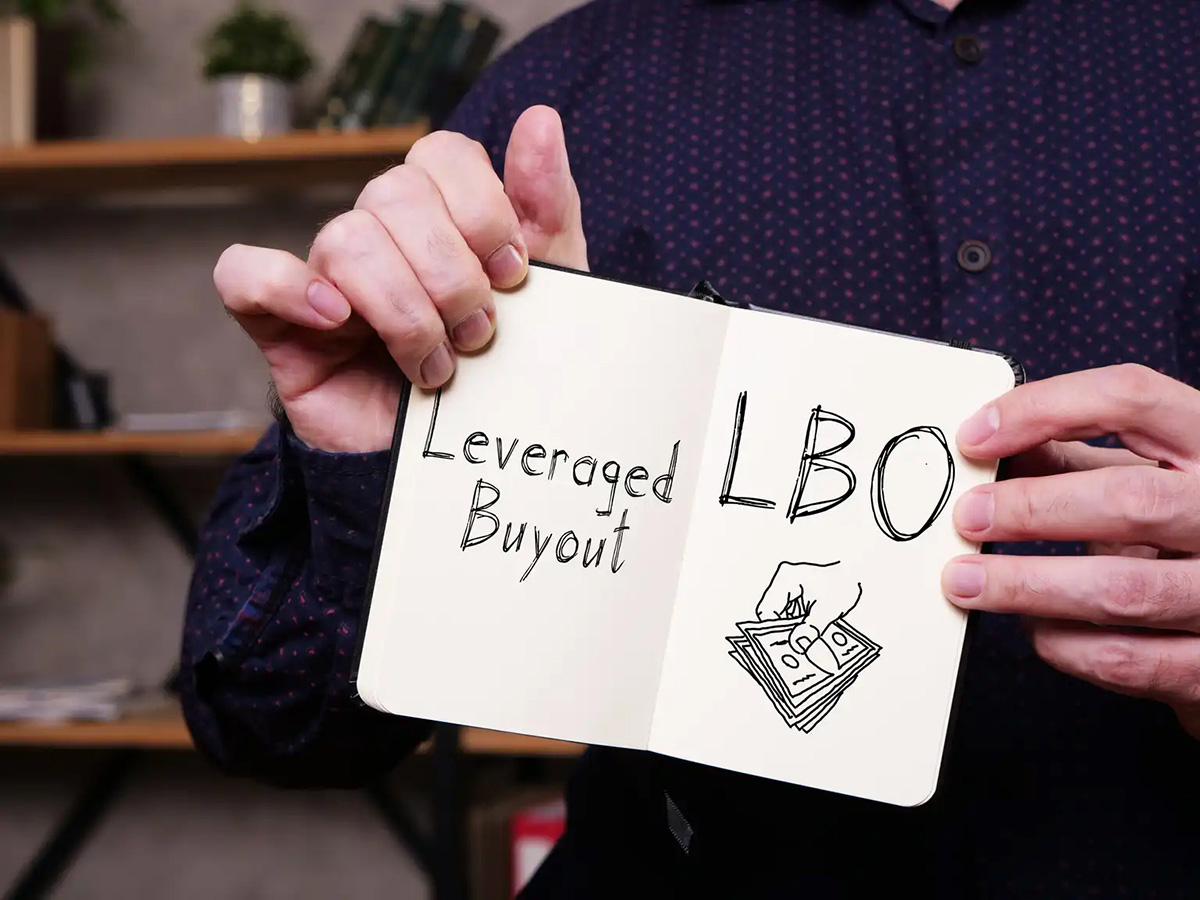Home>Finance>What Happens To Credit Card Debt When You Die In Florida


Finance
What Happens To Credit Card Debt When You Die In Florida
Modified: February 21, 2024
Learn what happens to credit card debt in the event of your death in Florida. Find out how your finances are affected and what steps you can take to protect yourself and your loved ones.
(Many of the links in this article redirect to a specific reviewed product. Your purchase of these products through affiliate links helps to generate commission for LiveWell, at no extra cost. Learn more)
Table of Contents
- Introduction
- Understanding Credit Card Debt in Florida
- What Happens to Credit Card Debt When You Pass Away?
- Executor’s Role in Handling Credit Card Debt
- Probate Process and Credit Card Debt
- Florida’s Homestead Exemption and Credit Card Debt
- Joint Credit Card Debt and Co-Signers
- Community Property and Credit Card Debt
- Debt Collection Practices After Death
- Credit Card Debt and Estate Planning Considerations
- Conclusion
Introduction
Welcome to Florida, the Sunshine State! Known for its warm weather, stunning beaches, and vibrant cities, Florida is a popular place to live and retire. However, with the allure of sunny skies and a relaxed lifestyle, it’s important to address the not-so-glamorous topic of credit card debt and what happens to it when you pass away in Florida.
Credit card debt is a common financial burden that many Americans face. It accumulates when individuals or households use their credit cards to make purchases but are unable to pay off the full balance each month. While it is crucial to manage and reduce credit card debt during your lifetime, understanding what happens to it after your death is equally important.
In this article, we will explore the intricacies of credit card debt and its implications when a Florida resident passes away. Whether you are facing credit card debt or are simply curious about the topic, this article aims to provide clarity and guidance.
From the role of an executor in handling credit card debt to the probate process and potential exemptions, we will delve into the specifics of credit card debt in Florida. Additionally, we will touch on joint credit card debt, co-signers, community property, and debt collection practices after death.
Furthermore, we will discuss how credit card debt can intersect with estate planning considerations, highlighting the importance of proactive financial management and ensuring a smooth transition for your loved ones.
Join us as we unravel the complexities surrounding credit card debt and its impact in the context of passing away in the Sunshine State. Empower yourself with the knowledge necessary to navigate this topic with confidence and make informed decisions regarding your financial well-being.
Understanding Credit Card Debt in Florida
Credit card debt is a type of unsecured consumer debt that occurs when individuals use their credit cards to make purchases but are unable to pay off the full balance owed. In Florida, as in most states, credit card debt is a common financial challenge that many individuals and households face.
When you use a credit card, you are essentially borrowing money from a financial institution. The balance you accumulate on the card is subject to interest charges and typically requires minimum monthly payments. However, if you are unable to pay off the full balance each month, the debt carries over, and interest continues to accrue.
It’s important to understand that credit card debt is not free money; it comes with financial consequences. Carrying a high balance on your credit cards can lead to hefty interest charges, negatively impacting your overall financial health.
Florida consumers are subject to the same laws and regulations as individuals in other states when it comes to credit card debt. This means that credit card companies have the right to collect the outstanding debt and may use various methods to do so, such as contacting you directly, hiring debt collectors, or even pursuing legal action.
The consequences of not addressing credit card debt can be significant. Apart from the financial strain it can put on individuals and families, outstanding credit card debt can also have a detrimental impact on credit scores, making it challenging to secure favorable loans or credit in the future.
It’s worth noting that managing credit card debt responsibly includes developing good financial habits, such as making regular payments, paying more than the minimum due, and living within your means. By doing so, you can take control of your personal finances and avoid the stress and burden of mounting credit card debt.
Now that we have a basic understanding of credit card debt in Florida, let’s explore what happens to this debt when a person passes away in the state.
What Happens to Credit Card Debt When You Pass Away?
When a person passes away, their debts do not automatically disappear. Credit card debt, like other types of debt, is typically handled through the estate of the deceased individual. The estate consists of all the assets, liabilities, and legal obligations left behind by the deceased.
The first step in determining what happens to credit card debt is to identify if the deceased had a will or trust in place. If a valid will exists, it will dictate how the estate and debts should be handled. The executor of the estate, as designated in the will, takes on the responsibility of managing the deceased person’s affairs, including addressing any outstanding debts, including credit card debt.
If there is no will or trust, the estate will be subject to the laws of intestate succession in Florida. In this case, the court will appoint an administrator to handle the estate and distribute assets according to state law. The administrator will also be responsible for settling any outstanding debts, including credit card debt.
The executor or administrator will typically notify creditors of the deceased’s passing and gather all relevant information regarding outstanding debts. They will then determine the available assets in the estate and prioritize the distribution of funds to cover these debts.
If there are not enough assets in the estate to cover all the debts, including credit card debt, the estate may be declared insolvent. In this case, Florida law establishes a priority order in which creditors are paid.
It’s important to note that in most cases, surviving family members are not personally responsible for the deceased’s credit card debt. However, credit card companies may attempt to collect from the estate’s assets. If there are not enough assets to cover the debt, the credit card companies may have to write off the balance as a loss.
Understanding what happens to credit card debt when you pass away in Florida is crucial for both individuals with outstanding credit card debt and those who may be designated as the executor or administrator of an estate. It’s important to consult with an attorney or financial professional to ensure a clear understanding of the legal obligations and processes involved in handling credit card debt after death.
Now, let’s explore the role of the executor in handling credit card debt and the probate process in more detail.
Executor’s Role in Handling Credit Card Debt
The executor of an estate plays a crucial role in handling credit card debt after the death of an individual. The executor is responsible for managing and distributing the deceased person’s assets, including addressing any outstanding debts, such as credit card debt.
When a person passes away, the executor steps in and takes on the legal and financial responsibilities of the deceased. One of their primary duties is to identify all the debts owed by the deceased, including credit card debt. The executor must gather all relevant information regarding the credit card accounts, such as the names of the card issuers, account numbers, and outstanding balances.
The executor must notify the credit card companies of the individual’s passing and provide them with a copy of the death certificate. This alerts the creditors to halt any further use of the credit card and begins the process of settling the outstanding debt.
The executor’s next step is to evaluate the assets in the estate to determine how the credit card debt can be paid off. They will assess the available funds, such as cash, investments, real estate, and other valuable assets that can be liquidated to cover the debt. The order in which creditors are paid depends on the laws of Florida, and the executor must adhere to these guidelines.
If there are not enough assets in the estate to fully cover the credit card debt, the executor will need to negotiate with the credit card companies to determine a reasonable settlement. This may involve discussions around reducing the amount owed or setting up a payment plan. It’s important for the executor to communicate with the credit card companies and reach an agreement that is fair and manageable.
It’s crucial for the executor to keep detailed records of all the steps taken to handle the credit card debt. This includes maintaining copies of correspondence with credit card companies, documenting the sale of assets, and creating a final accounting of how the debt was resolved.
It’s important to note that the executor is not personally responsible for the deceased’s credit card debt unless they co-signed or guaranteed the debt. The debts are typically paid out of the deceased’s estate, and if there are not enough assets to cover all the debt, the remaining balances may be written off by the credit card companies.
Understanding the executor’s role in handling credit card debt is essential for both the appointed executor and individuals planning their estate. Seeking guidance from an attorney or financial professional can provide clarity and ensure that the executor fulfills their obligations in accordance with Florida law.
Next, let’s explore the probate process and how it relates to credit card debt in Florida.
Probate Process and Credit Card Debt
The probate process is a legal procedure that takes place after someone passes away. It involves validating the deceased person’s will, identifying and valuing their assets, paying off debts, and distributing the remaining assets to the beneficiaries or heirs. The probate process also includes addressing and settling credit card debt.
In Florida, probate is typically required for estates with a total value of $75,000 or more, excluding the value of the deceased person’s homestead property. If the estate falls below this threshold, it may qualify for a simplified probate process known as “summary administration.”
During probate, the court-appointed executor or administrator oversees the distribution of assets and settlement of debts, including credit card debt. The executor will gather all necessary documentation related to the deceased’s credit card accounts, including outstanding balances, interest rates, and payment history.
The executor is responsible for notifying the credit card companies of the individual’s death and providing them with a copy of the death certificate. This triggers the process of addressing the outstanding credit card debt within the probate proceedings.
As part of the probate process, creditors have a limited period of time to make claims against the estate for repayment of debts. In Florida, creditors typically have three months from the date of publication of the “Notice to Creditors” in a local newspaper to file their claims. The executor reviews these claims, including credit card debt, and determines their validity.
If a valid claim for credit card debt is filed, the executor must allocate assets from the estate to pay off the debt according to the priority order established by Florida law. The priority order ensures that certain debts, such as funeral expenses and administration costs, are paid before other creditors.
If there are not enough assets in the estate to cover the credit card debt, the creditors may only receive a partial payment, and the remaining balance may be discharged. It’s important to note that certain assets, such as retirement accounts and life insurance policies with named beneficiaries, are typically not subject to probate and can pass directly to the designated beneficiaries without being used to settle credit card debt.
Understanding the probate process is crucial for both individuals planning their estate and the appointed executor or administrator. Consulting with an attorney who specializes in estate planning and probate can provide guidance and help navigate the complexities of addressing credit card debt during probate.
Next, let’s discuss the impact of Florida’s homestead exemption on credit card debt.
Florida’s Homestead Exemption and Credit Card Debt
Florida’s homestead exemption is a legal protection that provides homeowners with certain benefits and safeguards for their primary residence. Under the homestead exemption, a portion of the equity in a person’s primary residence is protected from creditors, including credit card companies, in certain situations.
In Florida, the homestead exemption is quite generous and offers significant protection to homeowners. The exemption applies to both real property (land and structures) and personal property (such as mobile homes). To qualify for the homestead exemption, a person must meet certain criteria, such as using the property as their primary residence.
Regarding credit card debt, the homestead exemption can provide some relief to homeowners. The equity in a person’s homestead property is protected up to a certain dollar amount from being used to satisfy credit card debt or other unsecured debts.
The exact amount of the homestead exemption varies based on factors such as the location of the property and the size of the property. For example, if the property is located within a municipality, the homestead exemption may be limited to $25,000. However, if the property is located outside a municipality, the exemption may be up to $50,000.
In addition to the exemption amount, Florida law also states that the homestead property is generally exempt from forced sale by creditors. This means that credit card companies cannot directly force the sale of the homestead property to satisfy credit card debt or other unsecured debts.
It’s important to note that while the homestead exemption provides protection for the equity in the property, it does not prevent creditors from placing liens on the property. If a credit card company obtains a judgment against the debtor, they may be able to place a lien on the homestead property. However, the equity up to the exemption amount would still be protected.
Understanding Florida’s homestead exemption is important for homeowners who have credit card debt or are concerned about potential future debts. The exemption can provide a level of security and peace of mind, knowing that a portion of their primary residence’s equity is shielded from creditors.
However, it’s essential to consult with an attorney who specializes in Florida bankruptcy and debtor-creditor law to fully understand the implications of the homestead exemption and how it may apply to your specific situation.
Next, let’s explore the impact of joint credit card debt and co-signers.
Joint Credit Card Debt and Co-Signers
Joint credit card debt occurs when two or more individuals share responsibility for repaying a credit card balance. This commonly happens when couples, family members, or business partners open a credit card account together.
In the state of Florida, joint credit card debt works similarly to other states. Each person listed on the credit card account is equally liable for the entire debt. This means that if one person fails to make payments or becomes unable to pay, the other person is still responsible for the full amount owed.
When one person passes away, the surviving joint account holder remains responsible for the full payment of the credit card debt. The credit card company can still pursue the surviving account holder for the outstanding balance, regardless of the death of the other joint account holder.
Co-signers, on the other hand, are individuals who agree to be responsible for the debt of the primary borrower. In the event that the primary borrower passes away, the co-signer becomes fully liable for the remaining credit card debt. The credit card company can seek repayment from the co-signer and may take legal action to collect the outstanding balance.
It’s important for individuals who have joint credit card debt or act as co-signers to be aware of their legal obligations and potential financial responsibilities. In the case of joint debt, communication and proactive management of the credit card balance during the lifetime of both individuals can help avoid complications and ensure a smooth transition in the event of one person’s passing.
When it comes to estate planning, individuals should consider the implications of joint credit card debt and co-signers. It may be beneficial to discuss strategies with an attorney or financial advisor to mitigate the potential financial risks and develop appropriate plans for debt management.
Now, let’s explore the impact of community property on credit card debt in Florida.
Community Property and Credit Card Debt
Florida is not a community property state, which means that it does not automatically consider all assets and debts acquired during a marriage as community property, as some other states do. Instead, Florida follows the principle of equitable distribution when dividing marital assets and debts during a divorce.
Equitable distribution means that the court will divide assets and debts in a fair and equitable manner, considering various factors such as the contribution of each spouse to the marriage, the economic circumstances of each spouse, and other relevant factors.
When it comes to credit card debt, the court will consider both the individual and joint responsibility for the debt incurred during the marriage. If the credit card is in one spouse’s name only, the court may still allocate a portion of the debt to the other spouse if it was used for the benefit of the marriage or household expenses.
It’s important to note that equitable distribution in Florida only applies during a divorce or legal separation. In the event of one spouse’s passing, credit card debt is typically settled through the probate process, as discussed earlier. The surviving spouse is generally not personally responsible for the deceased spouse’s credit card debt if they were not a joint account holder or co-signer.
However, if the surviving spouse was a joint account holder or co-signer, they would be responsible for the remaining credit card debt, as mentioned in the previous section. The court’s equitable distribution principles would come into play during the divorce process if the surviving spouse sought to divide the debt or allocate responsibility.
Understanding the impact of community property laws and equitable distribution is essential for married individuals who have incurred credit card debt together. It’s important to seek legal advice and potentially involve a divorce attorney to navigate the complexities of dividing joint debts during a divorce.
Now, let’s explore debt collection practices after death and how creditors can pursue repayment.
Debt Collection Practices After Death
Debt collection practices after a person’s death can vary depending on the circumstances and the type of debt involved. When it comes to credit card debt, creditors have specific procedures they follow to collect the outstanding balance from the deceased person’s estate.
Upon the death of an individual, it is common for creditors to be notified through the probate process or by the executor of the estate. Credit card companies may request a copy of the death certificate to verify the passing of the account holder.
Once notified, credit card companies will assess the outstanding debt and determine the available options for repayment. They may file a claim against the estate during the probate process to seek repayment of the credit card debt from the assets that are part of the estate.
If the estate has enough assets, the credit card debt will be paid off from the available funds, following the priority order set by Florida law. However, if the estate does not have sufficient assets to cover the debt, the credit card company may have to write off the remaining balance.
It’s worth noting that creditors do have a limited period of time to file a claim against the estate. In Florida, creditors typically have three months from the date of publication of the “Notice to Creditors” in a local newspaper to file their claims.
It is important to be aware that while the deceased’s estate is responsible for the repayment of credit card debt, surviving family members are generally not personally responsible for the debt unless they were joint account holders or co-signers. The debts are typically paid from the assets in the estate.
However, unethical debt collectors may attempt to pressure surviving family members into assuming the deceased’s debt or making payments. It is crucial for family members to be informed of their rights and to consult with legal professionals to ensure they are not unfairly targeted or manipulated by debt collectors.
Understanding the debt collection practices after death is essential for both the executor of the estate and the surviving family members. By having a clear understanding of the legal obligations and rights, individuals can navigate the process with confidence and avoid any unnecessary stress or financial burden.
Now, let’s explore the importance of considering credit card debt in the context of estate planning.
Credit Card Debt and Estate Planning Considerations
When it comes to estate planning, considering credit card debt is an important aspect of ensuring a smooth financial transition for your loved ones. Here are some key considerations to keep in mind:
1. Take stock of your credit card debt: Start by assessing your current credit card debt. Determine the outstanding balances, interest rates, and payment terms for each credit card account. This will provide a clear picture of your financial obligations and help you develop a strategy for managing and potentially reducing your debt.
2. Include credit card debt in your overall financial plan: Credit card debt should be factored into your broader financial planning. Develop a budget that allows you to make regular payments towards reducing your credit card debt while still meeting your other financial goals. Prioritize paying off high-interest debt first to minimize interest charges.
3. Consider life insurance: Life insurance can be a useful tool in addressing credit card debt after your passing. The death benefit from a life insurance policy can provide financial resources to cover outstanding credit card balances, ensuring that your loved ones are not burdened with your debt.
4. Coordinated estate planning: If you have joint credit card debt with a spouse or partner, it is crucial to coordinate estate planning efforts. Review beneficiary designations on credit cards, retirement accounts, and life insurance policies to ensure they align with your wishes and consider consulting with an attorney to address any specific concerns or complexities.
5. Explore debt management strategies: If you are struggling with credit card debt, consider working with a financial advisor or credit counselor to explore debt management strategies. They can help you develop a repayment plan, negotiate with creditors, and potentially consolidate or settle your debt for more manageable terms.
6. Discuss your financial situation with your loved ones: Openly communicate with your spouse, children, or other trusted family members about your credit card debt. They should be aware of your financial obligations and have access to important documents, such as account information and contact details for creditors, in the event of your passing. This transparency can help them navigate the necessary steps and make informed decisions.
Estate planning is a proactive step that allows you to protect your assets, plan for your legacy, and address your financial obligations, including credit card debt. Working with an experienced estate planning attorney can provide valuable guidance and ensure that your estate plan is comprehensive and tailored to your specific needs.
By considering credit card debt within your estate planning, you can help alleviate potential financial burdens on your loved ones and create a solid foundation for their financial security.
Now, let’s wrap up our discussion.
Conclusion
Understanding what happens to credit card debt when you pass away in Florida is vital for individuals and their loved ones. Credit card debt can be a significant financial burden, and addressing it during estate planning can help ensure a smoother transition and protect the financial well-being of your family.
Throughout this article, we have explored various aspects of credit card debt in the context of death and estate planning in Florida. From the role of the executor in handling credit card debt to the probate process and the impact of joint debt and co-signers, we have shed light on important considerations for individuals facing credit card debt or involved in estate matters.
We have discussed Florida’s homestead exemption and how it offers protection for homeowners, helping shield the equity in their primary residences from creditors. Additionally, we have examined community property concepts and equitable distribution in Florida, recognizing the potential implications on credit card debt during divorce proceedings.
Furthermore, we highlighted debt collection practices after death and the importance of understanding the rights and responsibilities of surviving family members. We emphasized the significance of estate planning considerations and how they intersect with credit card debt, including factors such as life insurance, coordinated estate planning, and debt management strategies.
By taking a proactive approach to managing credit card debt and incorporating it into your estate planning, you can help alleviate financial stress for your loved ones and ensure a solid foundation for their financial future.
Remember, it is crucial to consult with an attorney or financial advisor who specializes in estate planning and debt management to tailor a solution that fits your unique circumstances.
Plan ahead, stay informed, and take control of your credit card debt and estate planning to safeguard your financial well-being and create a legacy that benefits your loved ones for generations to come.
Thank you for joining us on this journey of understanding credit card debt and its implications when you pass away in Florida. Empower yourself with knowledge, make informed decisions, and embrace financial responsibility.














